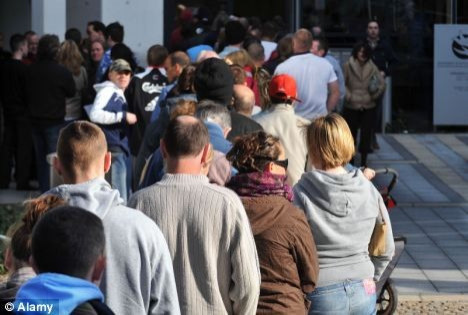Global Economy on Brink of Huge Jobs Recession: ILO

The world is on the brink of a new and deeper jobs recession that threatens to delay the global economic recovery and increase social instability across many countries, warned a report from the International Labour Organization (ILO).
ILO’s grim report, which was released Monday just ahead of the G20 summit in France, warned that it will take at least five years to for global employment in the advanced countries to return to pre-crisis levels.
ILO said that 80 million new jobs need to be created over the next two years to return to pre-crisis levels – but due to the slowdown in economic growth, only about half of that figure is likely to be achieved.
The report reveals that almost two-thirds of the advanced economies and half of the emerging and developing economies are suffering a slowdown in employment.
Global unemployment now already exceeds 200 million, the highest level ever reported.
“We have reached the moment of truth. We have a brief window of opportunity to avoid a major double-dip in employment,” said Raymond Torres, director of the ILO International Institute for Labour Studies.
Social unrest is likely to climb in many job-starved nations. Using a “social unrest index,” ILO said that 45 of the 118 nations it examined will undergo rising political and social instability , particularly in the European Union and Arab world. Ironically, the threat if such unrest is lower in Sub-Saharan Africa and Latin America.
Also, of those 118 countries examined by ILO, 69 reported an increase in the number of people who said living standards have declined since 2006.
Indeed, the Organization for Economic Co-operation (OECD) recently warned that GDP growth in the Eurozone would climb by 1.6 percent this year and only 0.3 percent next. By comparison, China’s economy is expected to expand by 9.3 percent this year and 8.6 percent next.
OECD has urged the G20 leaders to take bold action.
Much of the current weakness is due to a generalized loss of confidence in the ability of policymakers to put in place appropriate responses, the OECD said.
It is therefore imperative to act decisively to restore confidence and to implement appropriate policies to restore longer-term fiscal sustainability.
© Copyright IBTimes 2025. All rights reserved.





















